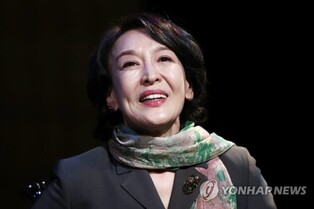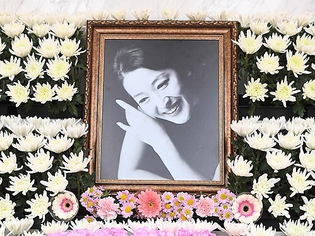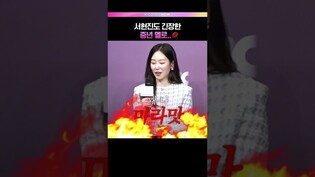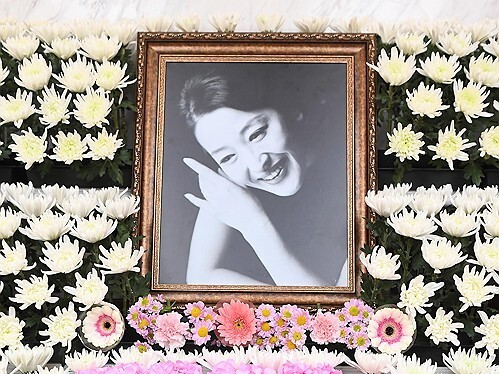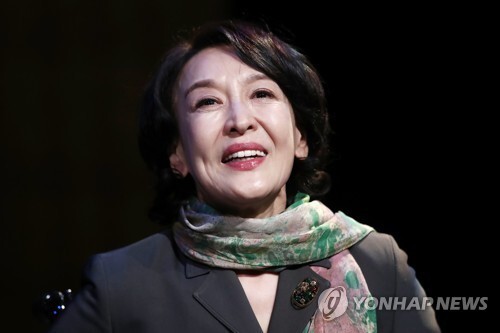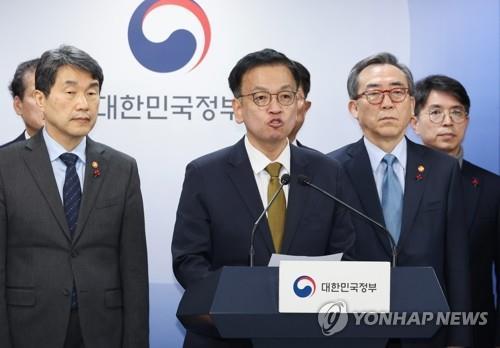 |
| ▲ Finance Minister Choi Sang-mok (C) speaks during a press conference at the government complex building in Seoul on Dec. 27, 2024. (Yonhap) |
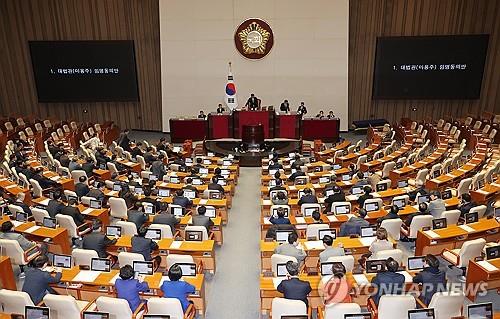 |
| ▲ A parliamentary plenary session is held at the National Assembly in Seoul on Dec. 27, 2024. (Yonhap) |
(News Focus) impeachment politics-economic impact
(News Focus) Deadlocked politics over successive impeachments fuel concerns over prolonging of economic instability, FX woes
By Kim Han-joo
SEOUL, Dec. 27 (Yonhap) -- The passage of the impeachment motion on Friday against acting President Han Duck-soo and the ensuing deadlock at the National Assembly has raised concerns over the nation's already fragile economy, amplifying uncertainty amid an unprecedented wave of political turmoil.
The opposition-controlled National Assembly voted to impeach Han over his refusal to appoint Constitutional Court justices to oversee President Yoon Suk Yeol's impeachment trial.
Yoon's duties were suspended earlier this month after his controversial declaration of martial law on Dec. 3.
With Han also suspended from his role as both prime minister and acting president, concerns are mounting over whether the next-in-line acting president, Finance Minister Choi Sang-mok, can prevent further economic woes and reinduce investor confidence.
Economic experts and government officials worry that the ongoing turmoil could further worsen instability and deepen the challenges facing South Korea's export-driven economy, which has been struggling with a prolonged downturn and weakened local currency.
The Korean won has plunged to a 16-year low, extending its nearly 13 percent decline this year and cementing its position as the weakest-performing currency in Asia.
The won was quoted at 1,467.5 won per U.S. dollar, down 2.7 won from the previous session. It was the lowest level since March 13, 2009, when the currency was quoted at 1,483.5 won in the aftermath of the global financial crisis.
"If political uncertainty drags on, its adverse effects on the economy will inevitably worsen," Seok Byung-hoon, an economics professor at Ewha Womans University, said.
He also warned that prolonged instability could trigger further foreign capital outflows, pushing the dollar-Korean won exchange rate even higher and further weigh down on the local bourse.
On Friday, the benchmark Korea Composite Stock Price Index extended losses for the third consecutive session by falling 1.02 percent to close at 2,404.77.
Experts point to "uncertainty" as the most significant factor to impact the country's credit rating.
"The mismatch between market expectations and policy decisions is particularly worrisome," Park Sang-hyun, a senior analyst at iM Securities, said. "This could deter foreign investors, adding another layer of complexity to the economic challenges."
Some analysts, however, view Choi's appointment as a potential stabilizing factor to ease the uncertainty issue.
They highlight his extensive experience as an economic bureaucrat and his nonpartisan background, which could enable him to focus on guiding the country's policies toward economic recovery.
"Given the current political and economic uncertainties, stability can only be restored by resolving leadership issues," said an economic expert who requested anonymity. "Choi's appointment could serve as a calming influence."
However, concerns persist about whether Choi, as the economic policy chief, can effectively address the broader national issues that extend beyond his economic expertise.
"It's unrealistic to expect the economic control tower to also manage diplomatic, defense and security matters," said a finance ministry official who requested anonymity.
(END)
(C) Yonhap News Agency. All Rights Reserved


















